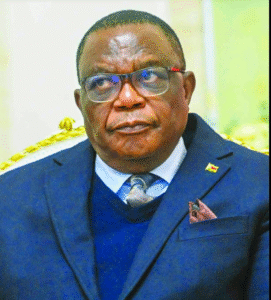ACTIVISTS GRANTED BAIL, BUT ZIMBABWE’S CRACKDOWN ON DEMOCRACY CONTINUES

The High Court of Zimbabwe has granted bail to three brave pro-democracy activists, but their release does not mean they are free. Namatai Kwekweza, Robson Chere, and Samuel Gwenzi were arrested on 31 July 2024 at Robert Mugabe International Airport. They were on their way to Victoria Falls to attend the African Philanthropy Conference. Alongside them was Vusumuzi Moyo, an artist and sound engineer. Before their flight could take off, police stormed the plane and took them into custody.
Authorities claimed the group was planning to cause public disorder. But many believe the arrest was part of a larger effort to silence activists ahead of the Southern African Development Community (SADC) summit in Harare. This has become a common tactic in Zimbabwe—silencing civil society voices during high-profile events to protect the government’s image.
The charges against the activists are based on old colonial-era laws, the same laws used in the past to crush black resistance under white rule. Today, those same laws are being used by the post-independence government to silence new voices fighting for freedom and democracy.
These arrests are not isolated. They are part of a pattern. Zimbabwe’s civil society, made up of human rights defenders, journalists, students, and community activists, is under constant threat. The state regularly uses force, fear, and legal traps to stop peaceful organizing and block any criticism of the regime.
Robson Chere’s case has drawn special attention. Reports say he was tortured while in police custody. His injuries were so bad they were considered life-threatening. Yet he received no medical help. This is not the first time the Zimbabwean police have been accused of torture. Chere’s story highlights the risks faced by activists in Zimbabwe and shows how the state continues to use violence to silence dissent.
After days in detention, Kwekweza, Chere, and Gwenzi were brought to court. The Zimbabwe Lawyers for Human Rights (ZLHR) represented them. ZLHR continues to be a lifeline for many Zimbabweans targeted by the government. They defend those who cannot defend themselves and continue to stand up to injustice.
The court granted the activists bail, but the conditions were very strict:
- They must pay US$150 or the local currency equivalent.
- They must report to a police station on the last Friday of every month.
- They are not allowed to contact or interfere with any state witnesses.
- They must live at fixed addresses and cannot move without informing authorities.
These harsh conditions are a clear sign that the state still views them as a threat. Though no longer in prison, they remain under surveillance. The regime wants to keep them quiet, restrict their movements, and make their activism as difficult as possible.
Their release has been called a small victory, but it is only a pause in a much larger war against civil liberties in Zimbabwe. The continued use of colonial laws to arrest and intimidate peaceful citizens is a clear sign that the government fears democracy. It fears the people. And it fears the truth.
The upcoming trial will be watched closely, both in Zimbabwe and abroad. People are hoping for justice, but they are also preparing for more harassment and crackdowns. The fight for human rights is far from over. Zimbabwe’s activists, like Kwekweza, Chere, and Gwenzi, are on the frontlines of that battle.
Their courage should inspire all of us to keep speaking out, to keep organizing, and to keep fighting for a Zimbabwe where freedom is not just a dream, but a reality.




These young activists are true heroes. Their bravery in the face of dictatorship gives us all hope. Thank you for sharing their story, it needs to be heard. Using colonial laws to silence pro-democracy voices? That tells you everything about ZANU PF’s hypocrisy. Brilliant article, powerful message.